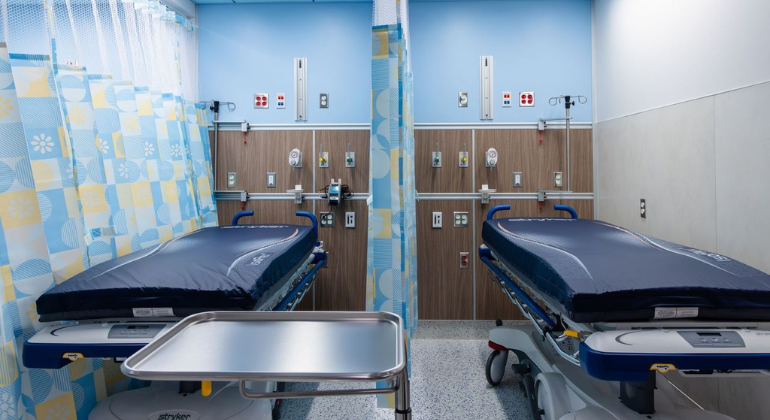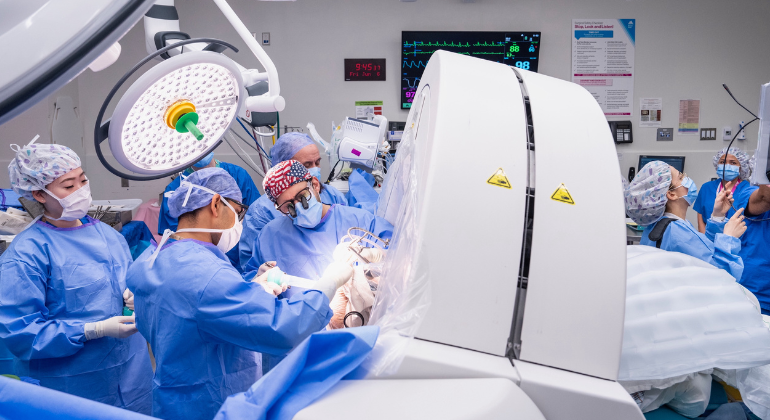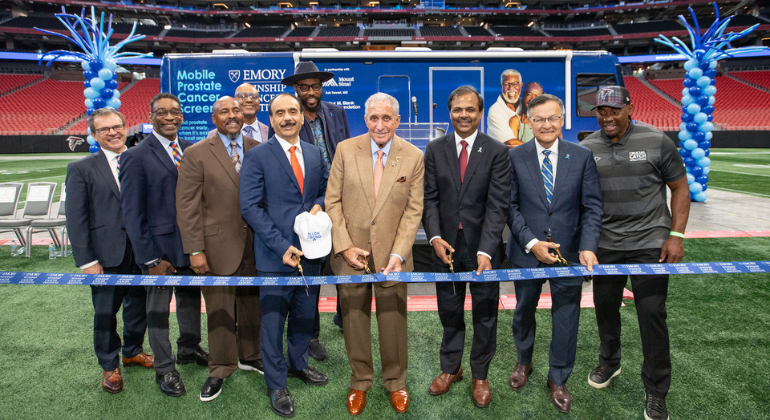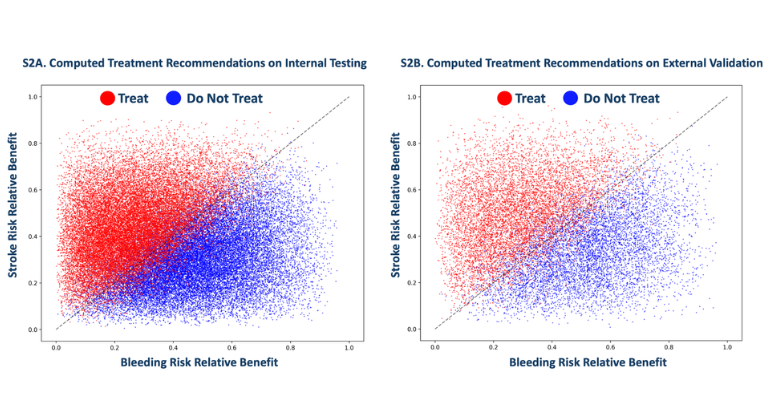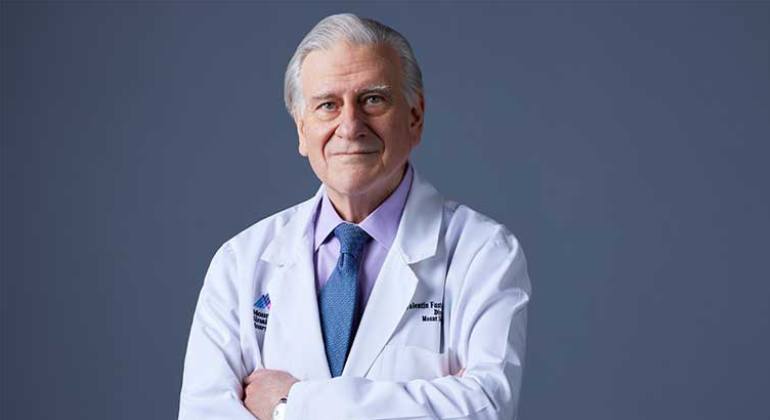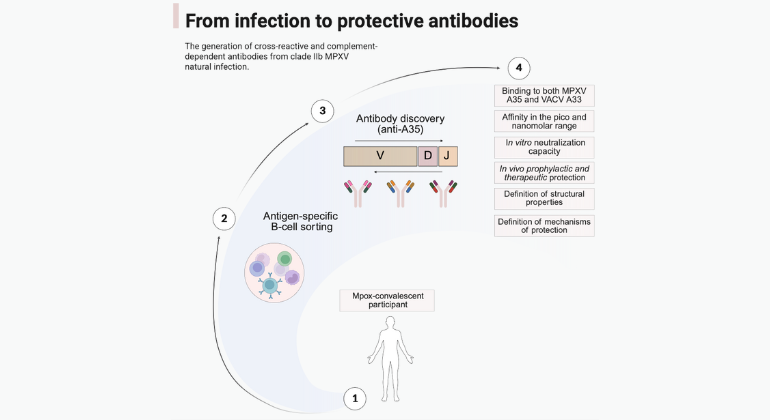Mount Sinai Study Demonstrates Connection Between Secondhand Tobacco Smoke And Coronary Artery Calcification In "Never Smokers"
Landmark research points to low-dose CT scan screening as a way to provide early detection of heart disease.
The extent of exposure to secondhand tobacco smoke (SHTS) is a significant predictor of the prevalence and extent of coronary artery calcification, according to a landmark research study by a team of radiologists and cardiologists at The Icahn School of Medicine at Mount Sinai.
Previously, scientific evidence supported a causal association between SHTS and coronary artery calcification mortality and morbidity. However, this study, conducted in association with the Flight Attendant Medical Research Institute International Early Lung Cancer Action Program (FAMRI-IELCAP) marks the first time low-dose, nongated CT scans have been used to assess this association. It is also the first to show the quantitative dose relationship of SHTS to a type of coronary artery disease.
The findings will be presented at the American College of Cardiology's Scientific Sessions, and published online by JACC Imaging, a journal of the American College of Cardiology (ACC). The study was presented at the ACC conference by Harvey Hecht, MD, Associate Director of Cardiac Imaging at The Mount Sinai Medical Center and Professor of Medicine at the Icahn School of Medicine at Mount Sinai and Jagat Narula, MD of Mount Sinai Heart.
"As the debate continues to rage concerning the early detection of all types of cancer, this study reminds us that carefully analyzed, low-dose CT scan screening may provide secondary information of potentially equal importance in prolonging a healthy life," said Burton Drayer, MD, the Dr. Charles M. and Marilyn Newman Professor and Chair of the Department of Radiology at the Icahn School of Medicine at Mount Sinai.
The study, titled "Secondhand Tobacco Smoke in Never Smokers Is a Significant Risk Factor for Coronary Artery Calcification," examined questionnaire data from 3,098 "never smokers" (defined as having smoked fewer than 100 cigarettes in their lifetimes; ages 40-80). Researchers identified four categories of SHTS exposure: minimal, low, moderate, and high.) The enrollees then underwent subsequent low-dose, nongated CT scanning to determine extent of coronary artery calcification (CAC).
Researchers from Mount Sinai found that 24 percent of study participants (754) had CAC, with rates significantly higher in the sub-groups with more than minimal (low, moderate and high ) exposure to SHTS. They concluded that the presence and extent of CAC was associated with the extent of secondhand tobacco smoke exposure, even when adjusting for other risk factors for coronary artery calcification. The study suggests that SHTS exposure causes CAC.
"FAMRI's dedication to understanding the harm due to secondhand tobacco smoke have made this important contribution to a widening body of research possible," said Claudia Henschke, MD, the Principal Investigator of the FAMRI-IELCAP Center of Excellence at Mount Sinai and the Director of the Lung and Cardiac Screening Program at Mount Sinai Medical Center and a Professor of Radiology at the Icahn School of Medicine at Mount Sinai.
Study participants in the FAMRI-IELCAP CT screening program had no prior history of, and were asymptomatic for, coronary artery disease. Researchers also performed logistic regression analyses, adjusting for age, gender, diabetes, hypercholesterolemia, hypertension and renal disease.
"As medical professionals, we must help heighten awareness about the negative health effects of passive smoking, as well as indoor and outdoor pollution," said Dr. Narula. "And from a public health perspective, we must also campaign more vigorously against the tobacco industry and do everything possible to lessen – and eliminate – the allure of smoking among people young and old. Studies like this, along with other measures, are critical tools in achieving those goals."
"This research provides additional evidence that secondhand smoke is harmful, and may be even more dangerous that we have thought," said Dr. Hecht. "We actually found the risk of secondhand smoke exposure to be an equivalent or stronger risk factor for CAC than other well-established ones such as high cholesterol, hypertension and diabetes."
"We are reminded that the risks from tobacco occur not only to the smoker, but also to those exposed to their secondhand smoke – and that SHTS can also affect not only the lungs, but the heart as well," said the first author of the study, David Yankelevitz, MD, Director of the Lung Biopsy Service at the Mount Sinai Medical Center and a Professor of Radiology at the Icahn School of Medicine at Mount Sinai.
About The Mount Sinai Medical Center
The Mount Sinai Medical Center encompasses both The Mount Sinai Hospital and Icahn School of Medicine at Mount Sinai. Established in 1968, the Icahn School of Medicine is one of the leading medical schools in the United States, and is noted for innovation in education, biomedical research, clinical care delivery, and local and global community service. It has more than 3,400 faculty in 32 departments and 14 research institutes, and ranks among the top 20 medical schools both in National Institutes of Health (NIH) funding and by U.S. News & World Report.
The Mount Sinai Hospital, founded in 1852, is a 1,171-bed tertiary- and quaternary-care teaching facility and one of the nation's oldest, largest and most-respected voluntary hospitals. In 2012, U.S. News & World Report ranked The Mount Sinai Hospital 14th on its elite Honor Roll of the nation's top hospitals based on reputation, safety, and other patient-care factors. Mount Sinai is one of 12 integrated academic medical centers whose medical school ranks among the top 20 in NIH funding and by U.S. News & World Report and whose hospital is on the U.S. News & World Report Honor Roll. Nearly 60,000 people were treated at Mount Sinai as inpatients last year, and approximately 560,000 outpatient visits took place.
For more information, visit http://www.mountsinai.org.
Find Mount Sinai on:
Facebook: http://www.facebook.com/mountsinainyc
Twitter @mountsinainyc
YouTube: http://www.youtube.com/mountsinainy
# # #
About the Mount Sinai Health System
Mount Sinai Health System is one of the largest academic medical systems in the New York metro area, with 48,000 employees working across seven hospitals, more than 400 outpatient practices, more than 600 research and clinical labs, a school of nursing, and a leading school of medicine and graduate education. Mount Sinai advances health for all people, everywhere, by taking on the most complex health care challenges of our time—discovering and applying new scientific learning and knowledge; developing safer, more effective treatments; educating the next generation of medical leaders and innovators; and supporting local communities by delivering high-quality care to all who need it.
Through the integration of its hospitals, labs, and schools, Mount Sinai offers comprehensive health care solutions from birth through geriatrics, leveraging innovative approaches such as artificial intelligence and informatics while keeping patients’ medical and emotional needs at the center of all treatment. The Health System includes approximately 9,000 primary and specialty care physicians and 10 free-standing joint-venture centers throughout the five boroughs of New York City, Westchester, Long Island, and Florida. Hospitals within the System are consistently ranked by Newsweek’s® “The World’s Best Smart Hospitals, Best in State Hospitals, World Best Hospitals and Best Specialty Hospitals” and by U.S. News & World Report's® “Best Hospitals” and “Best Children’s Hospitals.” The Mount Sinai Hospital is on the U.S. News & World Report® “Best Hospitals” Honor Roll for 2025-2026.
For more information, visit https://www.mountsinai.org or find Mount Sinai on Facebook, Instagram, LinkedIn, X, and YouTube.

Single Hair Strand Could Provide Biomarker for ALS, Mount Sinai Study Finds
Sep 04, 2025 View All Press Releases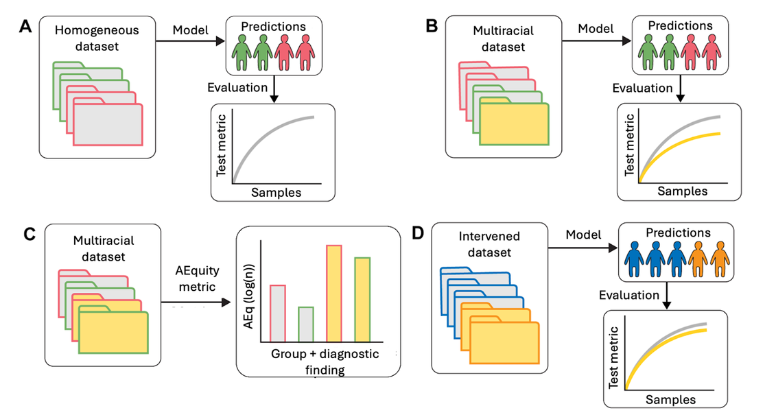
New AI Tool Addresses Accuracy and Fairness in Data to Improve Health Algorithm
Sep 04, 2025 View All Press Releases
Mount Sinai Study Discovers Potential Link Between Stress and Type 2 Diabetes
Sep 03, 2025 View All Press Releases
Mount Sinai Researchers Use AI and Lab Tests to Predict Genetic Disease Risk
Aug 28, 2025 View All Press Releases